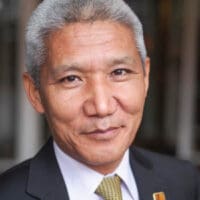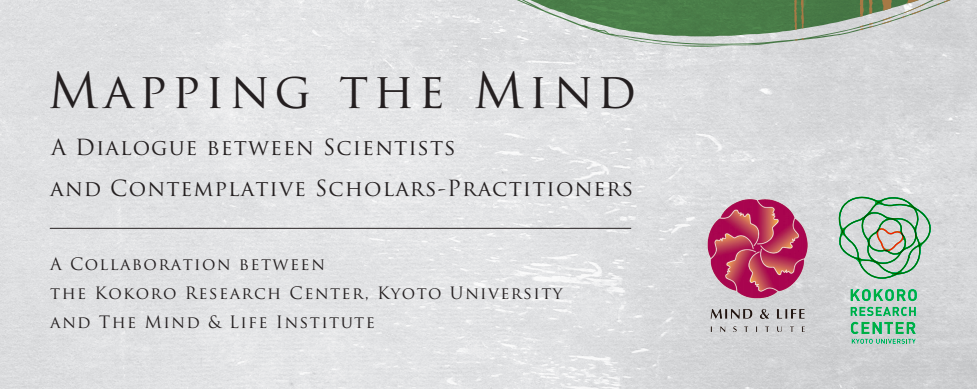Filmed during Mind & Life Institute’s “Mind and Life XXIX: Mapping the Mind” on April 12, 2014.
Emotional Plasticity: A Healthy Society
SPEAKER: Barry Kerzin
Our high-stress busy lives are out of control. Our emotions have gone wild. Anger is on the rise. Jealousy, aggressive competition, and judgmental attitudes feed on anger. Burnout runs rampant. Depression, loneliness, and suicide fill the gap. Inner calm and peace lay dormant. Honesty is out of favor. Personal and societal transparency is lacking. Corruption is rising. Trust and genuine friendship are waning. Mind training can help reverse this trend. Cultivating honesty, trust, and concern for others brings an inner joy and sense of well-being. Mindfulness keeps tabs on our emotions. Thus, ethics education is vital to a healthy society. Secular ethics has universal appeal as it is based on scientific research and not blind faith. Research now demonstrates that ethical lives lead to good physical and mental health. Mapping the mind reveals our various emotions and their plasticity. This talk catalogues various emotions within the Buddhist framework of the 6 primary and 51 secondary minds, with an emphasis on positive transformation
Mapping the Mind of Children and Creating a Positive School Environment: Evidence-Based Practice in Psychology
SPEAKER: Junko Tanaka-Matsumi
Mapping children’s minds involves context-specific assessment of children and those who interact with them, and not in isolation from their socio-cultural environment. This presentation focuses on evidence-based practice in the everyday environment of children as they interact with peers, teachers, and their families. Currently, approximately 6.5% of school children in Japan are reported to exhibit problems in attending classes and learning in regular classrooms. Some have developmental disorders and others might simply exhibit excessively inappropriate behaviors due to malfunctioning behavioral contingencies. Such behavioral and learning problems have prompted educators and psychologists to create reliable psychological assessments, design appropriate interventions, monitor children’s progress, evaluate effectiveness in a naturalistic environment, and test for generalization of effectiveness in other relevant environments. The intervention involves training in self-management and self-control where children learn to monitor their own mind, initially starting with specific behaviors. Reinforcement of positive behaviors in children will increase their self-esteem and encourage positive peer interactions. Creating a positive responsive environment will enhance communication and nurture contemplative practice at home and in schools.
How Close Can Computers Get to Human Beings?
SPEAKER: Makoto Nagao
The function of mind is best mapped or revealed in conversation. It includes not only facts and knowledge, but also feelings and emotions within a speaker’s mind. There has been a great deal of research on and development of humanoid robots in Japan, particularly for elderly people and hospitalized patients. In these cases, it will be essential to develop a conversation or dialogue system between robots and people. An important capability for the robot in this process is deduction and inference from people’s demands in order to generate proper answers. However, human beings often express their wishes and demands in indirect or implicit ways, using vague or partial expressions. Therefore, robots need strong inferential power within dialogue contexts, as well as specific information on the speaker’s personal history, health, and relationships. Moreover, it is essential that robots can extract feelings and emotions from an utterance, and compose an appropriate reply that will also provide comfort. One aim of this process is to foster gratitude and trust in the human dialogue partner. To stimulate research in these areas of dialogue system construction, we must organize a cooperative research group of information scientists, linguists and psychologists. The development of such robot dialogue systems will not only help and comfort aged persons and hospitalized patients, but will also lead to the clarification of how the mind reacts to external stimuli, thus furthering our understanding of mental function. This talk discusses robot dialogue research as a new way to understand the mind in a functional way, compared to the traditional arguments in metaphysics and the practice of contemplative training to control one’s mind.
Group Discussion and remarks from His Holiness the 14th Dalai Lama
MODERATOR: Roshi Joan Halifax
INTERPRETER: Thupten Jinpa
PANELISTS:
Richard J. Davidson
Jay Garfield
Yoshiro Imaeda
Atsushi Iriki
Shinobu Kitayama
Shigefumi Mori
Shinsuke Shimojo
Arthur Zajonc





